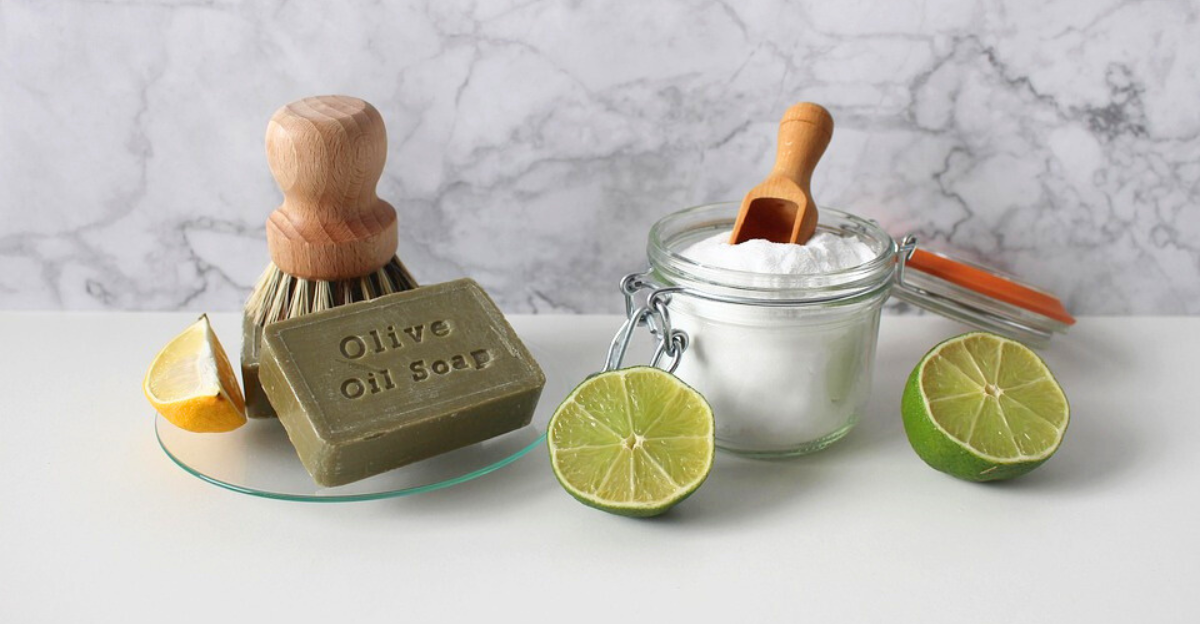
Cleaning products are expensive and tend to run out fast, especially if you’re the type of person who cleans often. These detergents can be made from environmentally damaging chemicals that shouldn’t be regularly flushed into our water systems. Using natural ingredients found at home can ensure that your tidying activities are easy on the pocket and environmentally-conscious.
1. All-Purpose Cleaner
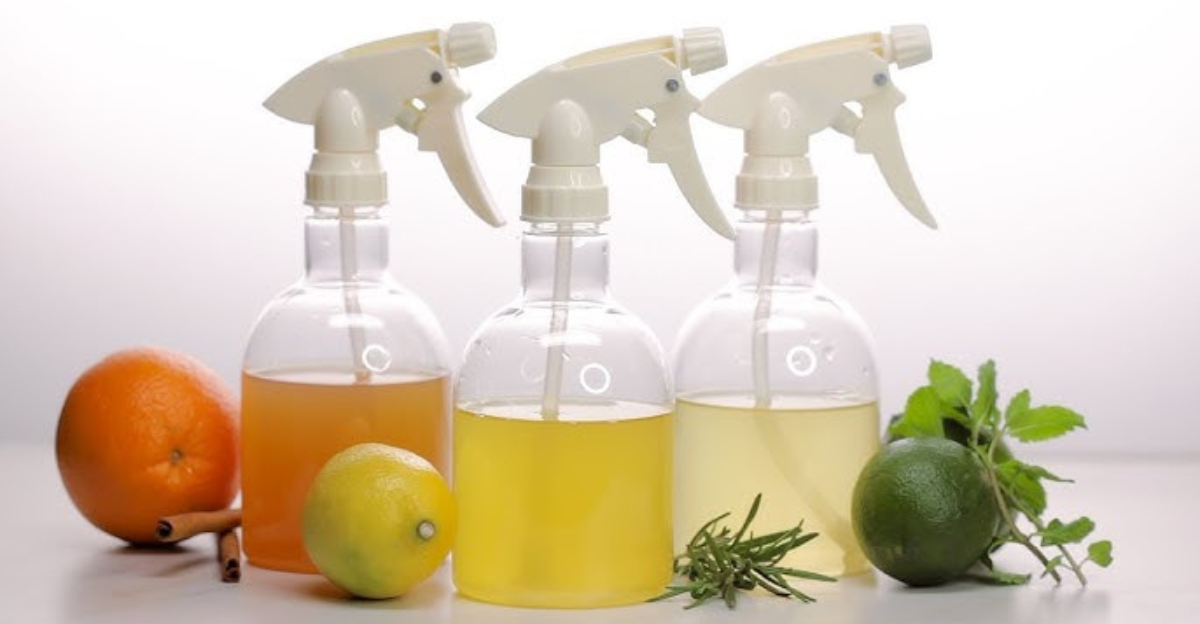
It’s great to have a versatile cleaning solution you can whip out for everyday uses, like wiping down surfaces. Mixing equal parts of vinegar and water makes for a great natural all-purpose cleaner. Pro tip: Adding in a couple squirts of your favorite citrus fruit or essential oils also helps infuse a pleasant scent.
2. Glass & Mirror Cleaner
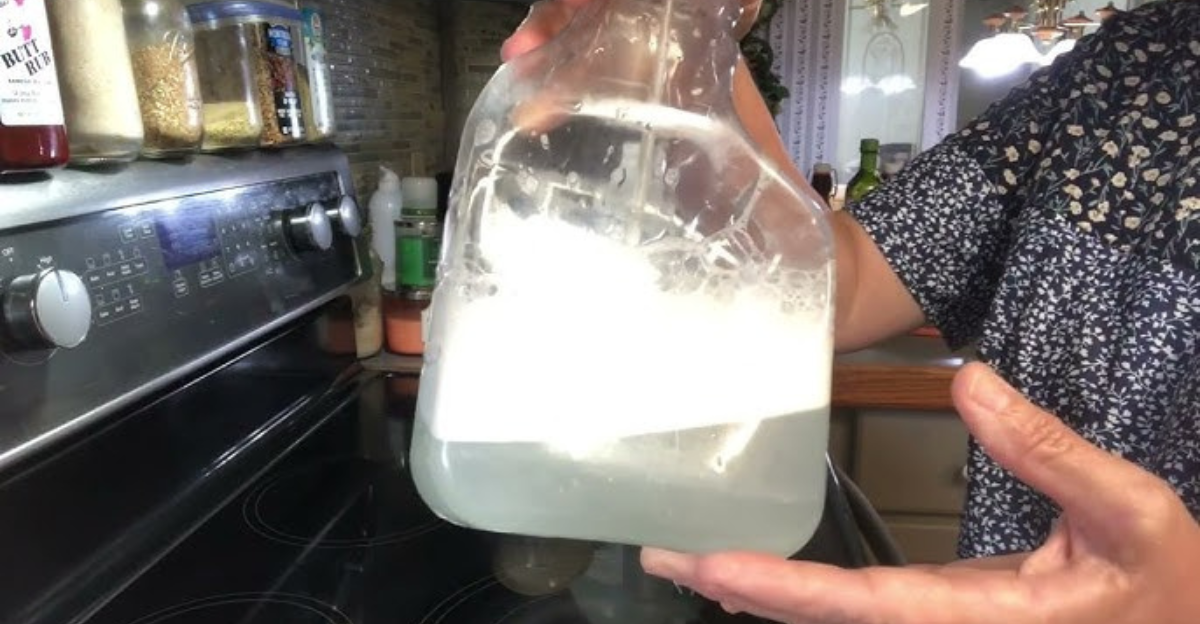
Using certain glass cleaners can cause unsightly streaks. However, you can make a simple solution at home in minutes by adding a 1/2 cup vinegar, ¼ cup rubbing alcohol and 2 cups of water together. This combo will leave your mirrors and windows sparkling with a streak-free finish.
3. Disinfecting Spray
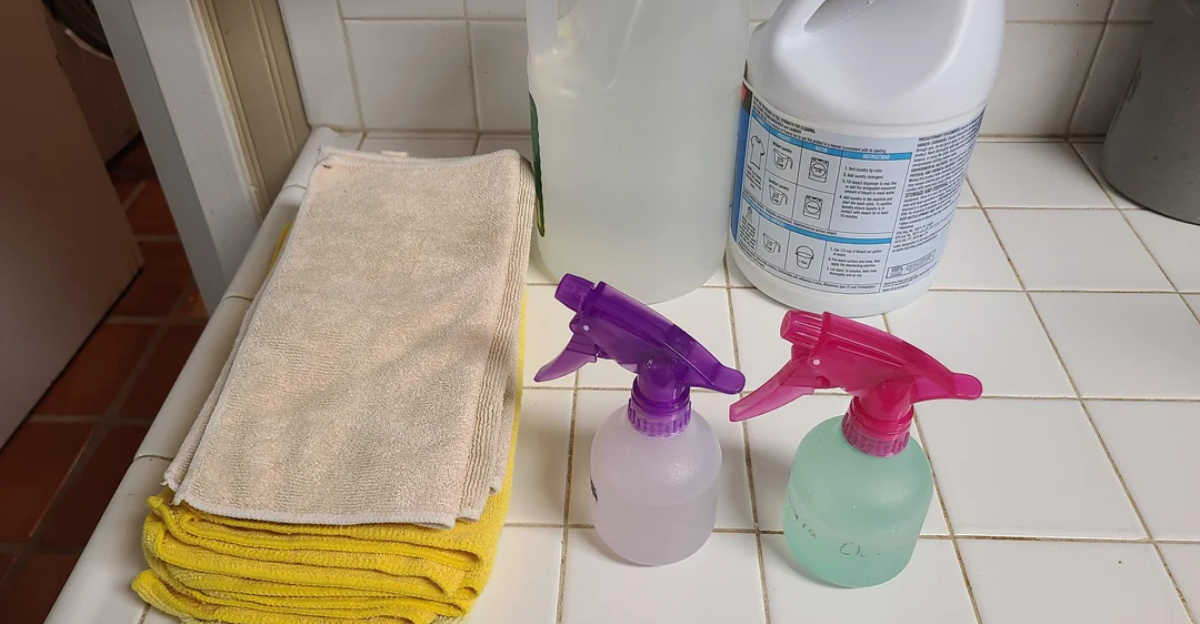
Disinfectants are able to kill bacteria but can be harmful to us and our beloved pets. An effective solution of equal parts water and rubbing alcohol along with 1 tsp of hydrogen peroxide is a great alternative.
4. Toilet Bowl Cleaner
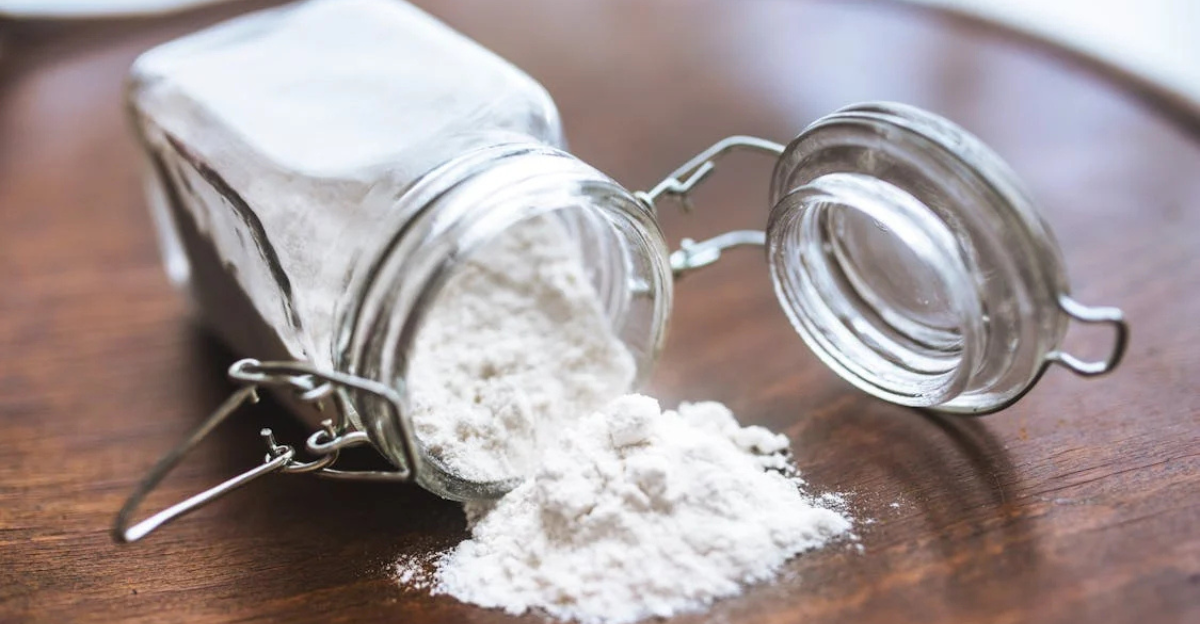
It’s a lot easier to scrub away stains when they’re fresh, but for older ones, a toilet cleaner can help break down the stuck-on scale and grime. Combining ½ cup of baking soda and ½ cup vinegar does just the trick, with the help of some good old elbow grease.
5. Tub & Tile Scrub
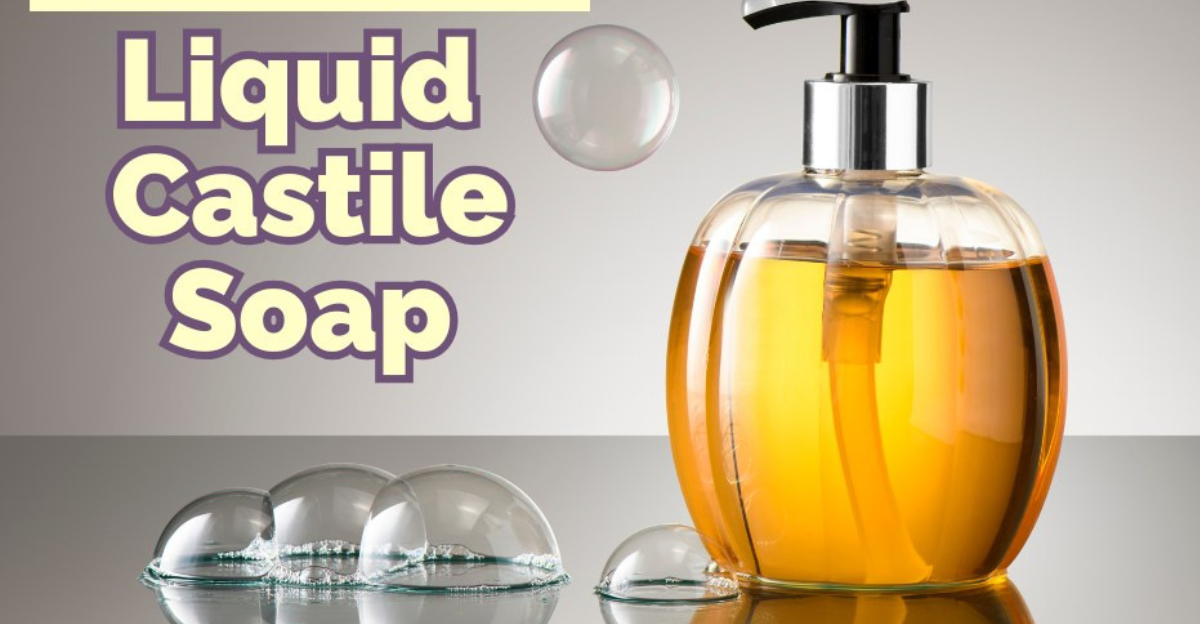
Like glass, tub and tile, can show obvious signs of water staining, especially if you have hard water. In addition, the grout in between tiles catches and holds onto the grime easily and needs to be regularly scrubbed. Mix together ½ cup baking soda and liquid castile soap to form a paste. Then, buff the paste onto the surfaces of your tub and tiles.
6. Carpet Deodorizer
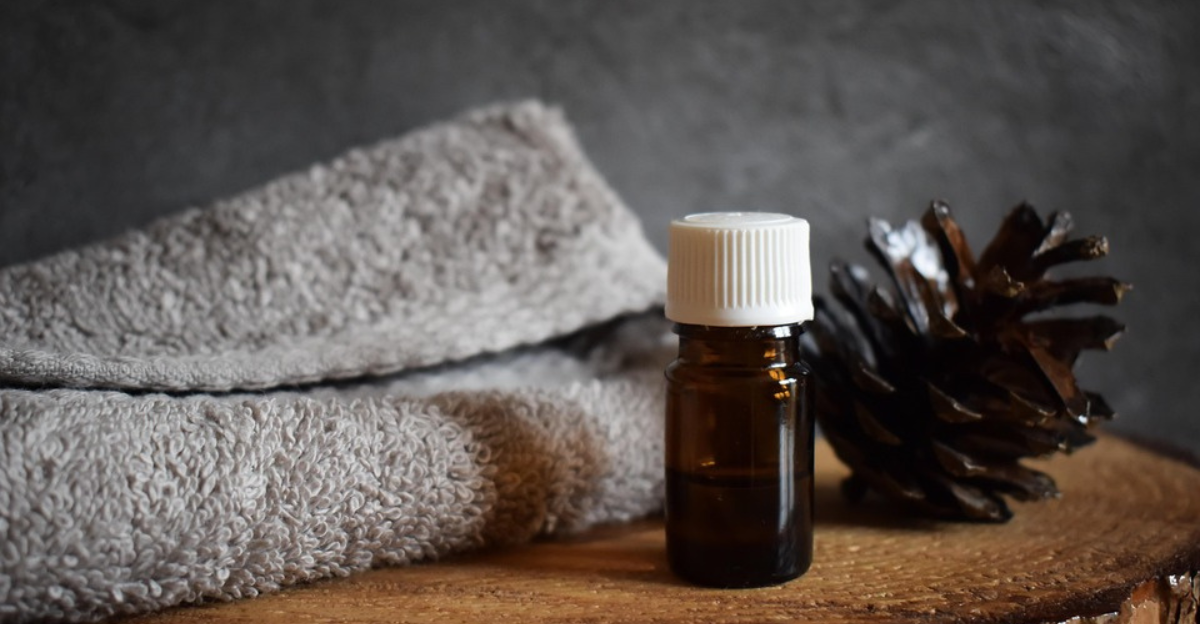
Carpets are massive dirt catchers and hold onto smells when not deodorized regularly. Baking soda and a few drops of essential oil sprinkled onto your carpets for only 15 minutes or so can help lift unpleasant scents and cleanse between the fibers. The baking soda absorbs any odors and serves as a gentle abrasive to remove dirt that will lift as you vacuum up afterward.
7. Fabric Softener
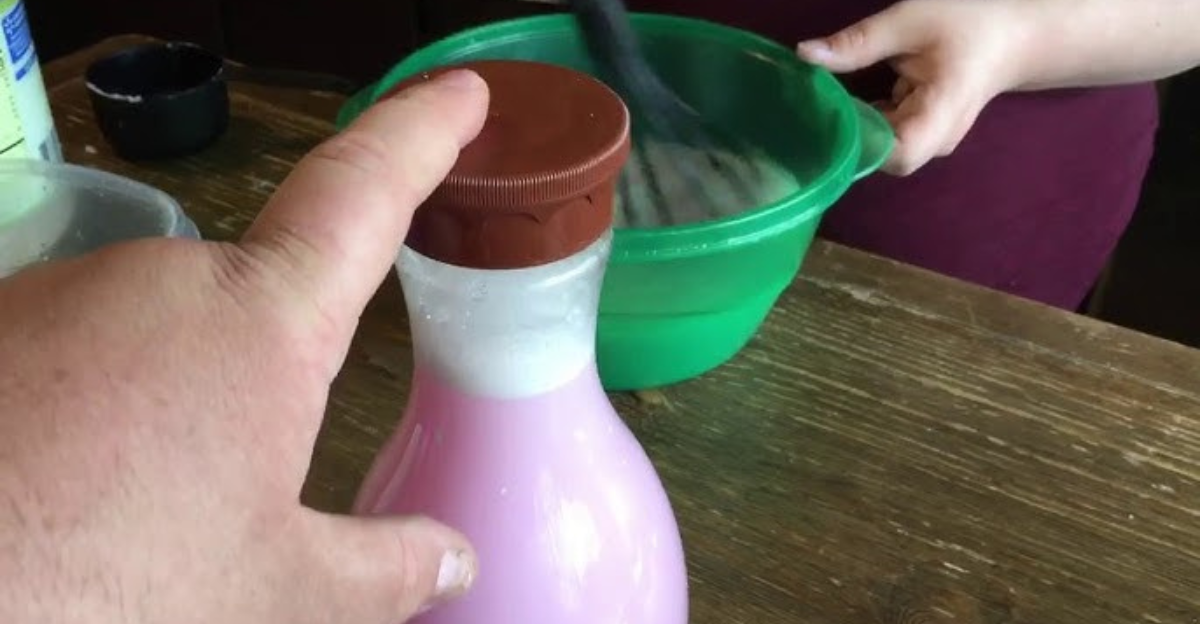
Using only laundry detergent tends to leave clothes stiff and feeling dry. So, fabric softeners are nice laundry solutions to have, but there is a way to do this with eco-friendly ingredients. Combine 2 cups of vinegar with 15-20 drops of your choice of essential oil, and add this to your rinse cycle. Vinegar by itself may have a distinctive smell but once it is added with the essential oils and goes through rinsing, the scent is not transferred to the laundry.
8. Powdered Laundry Detergent
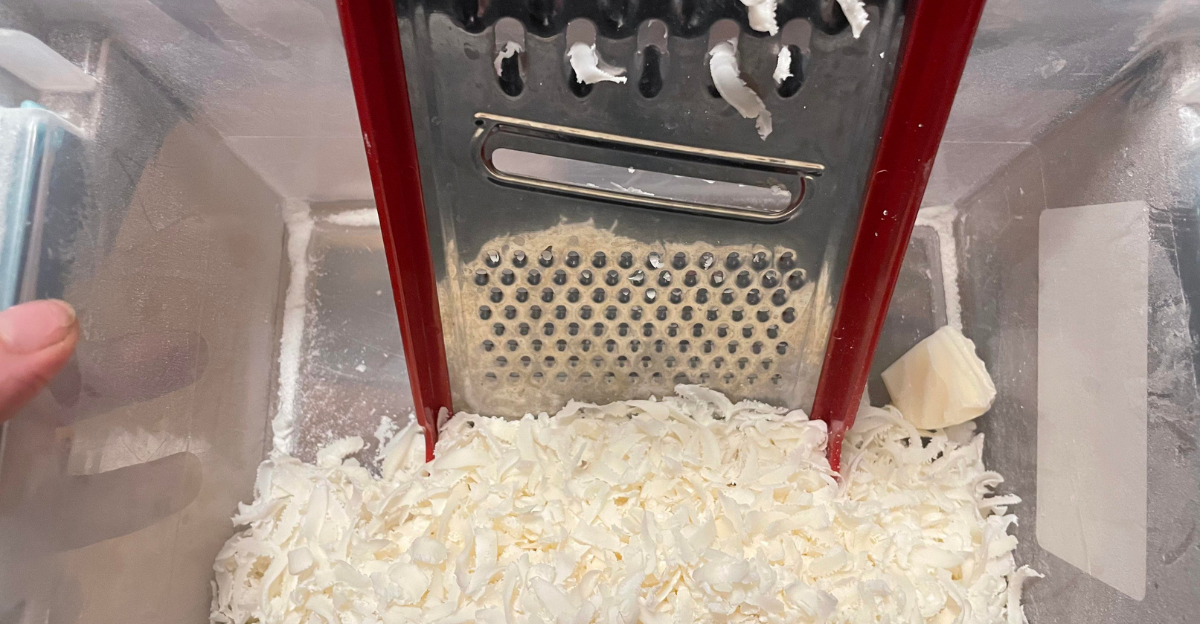
Laundry detergents can contain toxins and since we use it so often, we are constantly introducing it into the environment. With the amount of laundry that needs to be done, you find yourself having to buy gallons and gallons of it. Grate 1 bar of your soap of choice and add it to equal parts of washing soda, or borax, to make an efficient DIY detergent. You should add 1-2 tablespoons per load, but it all depends on the size of your load.
9. Liquid Laundry Detergent
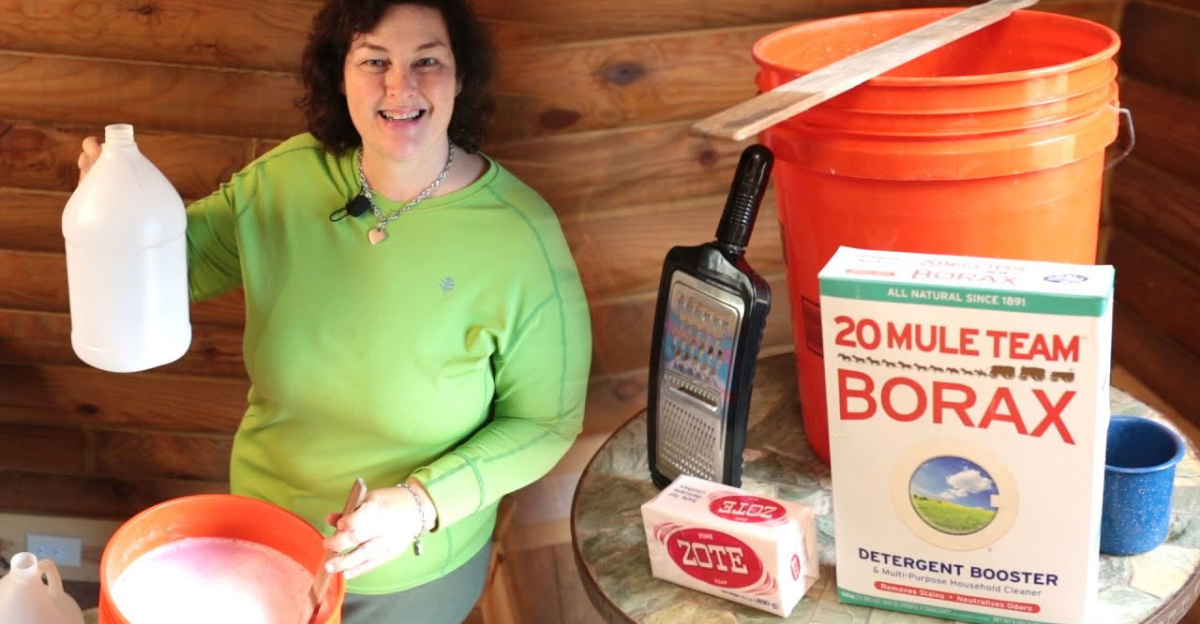
If you prefer to use liquid laundry detergent in comparison to powdered laundry detergent. You can take the similar route to reduce your carbon footprint and save a penny. Follow the same steps for making the powder but add an appropriate amount of water to make a dilute solution.
10. Stain Remover
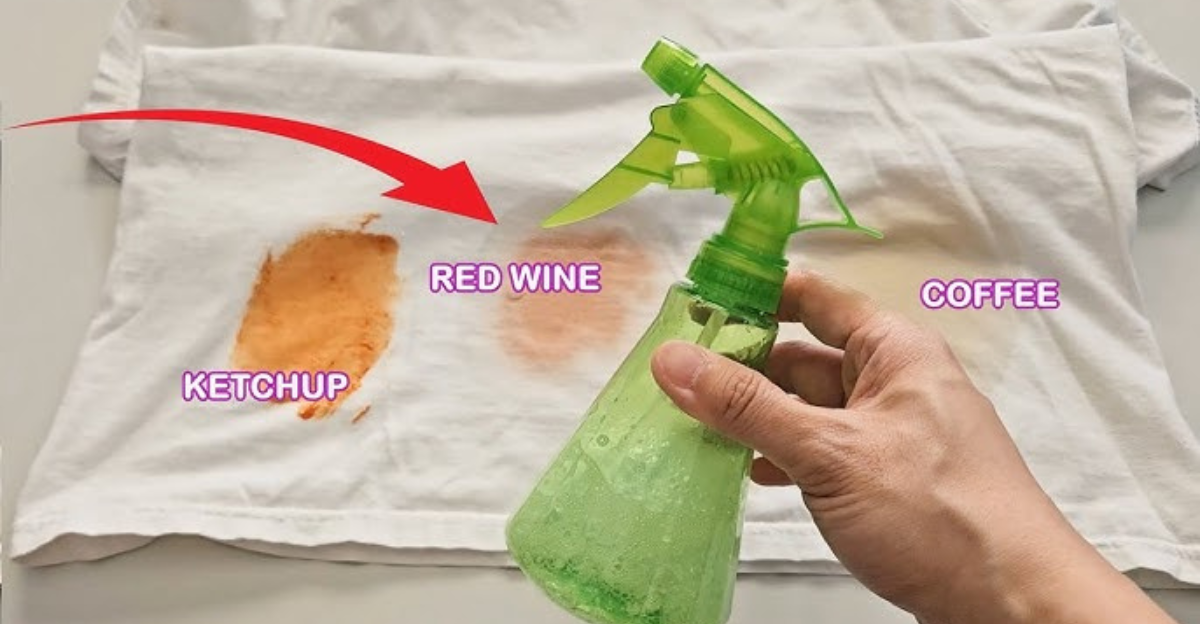
Some stains are stubborn and require spot treatment and there are plenty of store-bought stain removing options. Making your own to use at home or to take on the go is easy! Add 1 part dish soap to 2 parts hydrogen peroxide and store in a small spray bottle.
11. Air Freshener
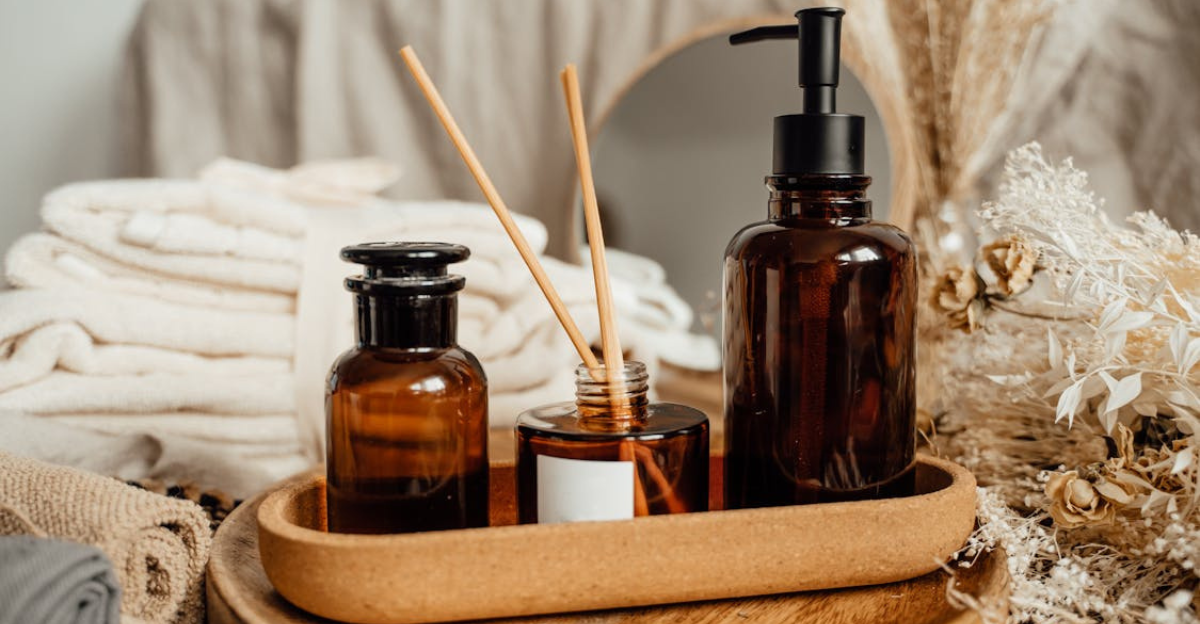
People use so much air freshener and don’t seem to realize it. Air freshener sprays release chemicals in the air which are harmful and could be inhaled. Take a spray bottle and combine ¾ cup of water, 2 tbsp rubbing alcohol, and a few drops of your favorite essential oils.
12. Drain Cleaner
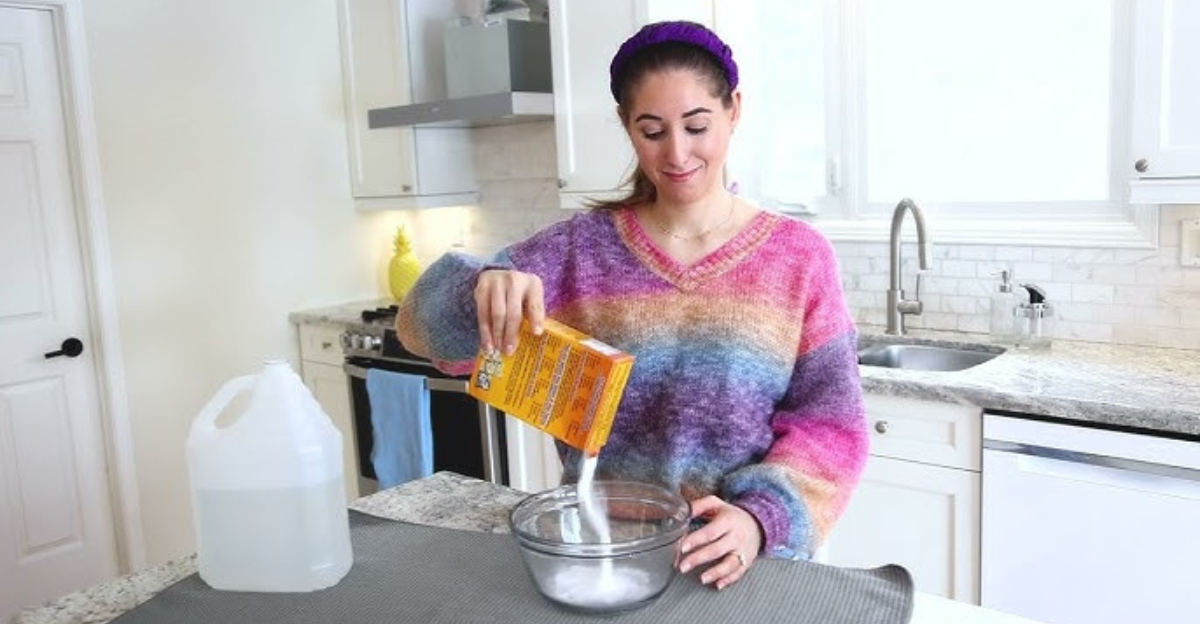
Grime that builds up in the drain tends to go unnoticed until the sink clogs. These hard-to-reach areas require strong-acting chemicals to work at the dirt along the pipes which means we are dumping toxic substances directly into our waters. A ½ cup baking soda, 1 cup vinegar, and boiling water does the trick with none of the damage.
13. Dish Soap
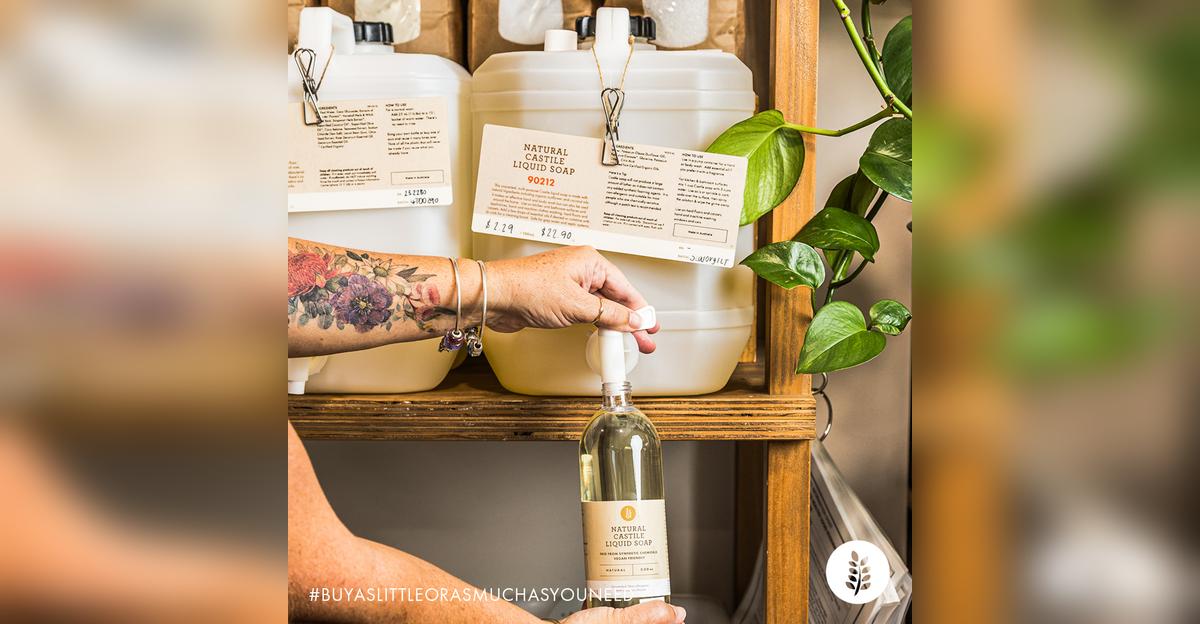
Whipping up a batch of homemade dish soap is as easy as adding 1 tbsp of vinegar to 1 cup of liquid castile soap. Liquid castile soap is gentler on the skin and made from natural plant-based oils. Doing dishes means your hands are drenched in soapy water for quite some time, so it’s important to choose products that are suitable for prolonged skin exposure.
14. Microwave Cleaner
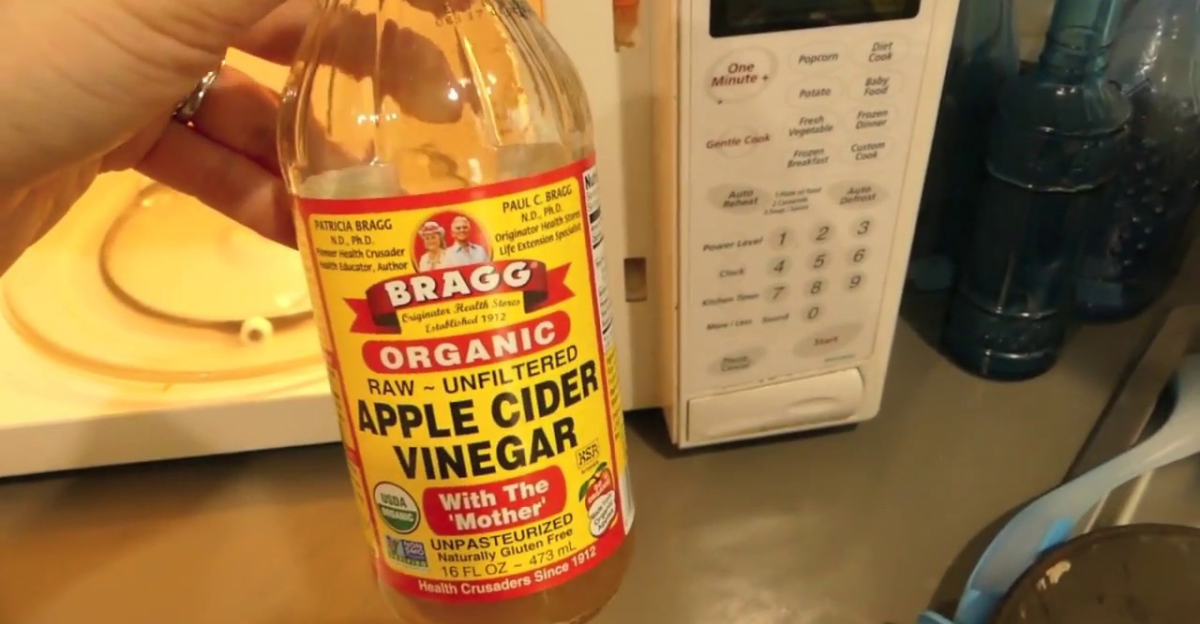
Microwaves don’t regularly get checked up on, but heating food leads to small splashes of residue all over the inner surface. Heat a microwave-safe bowl filled with 1 cup water and 2 tbsp of regular or apple cider vinegar and pop in the microwave for a minute or until it becomes steamy. The vapors released loosen the grime making it easier to wipe down and clean.
15. Stainless Steel Polish
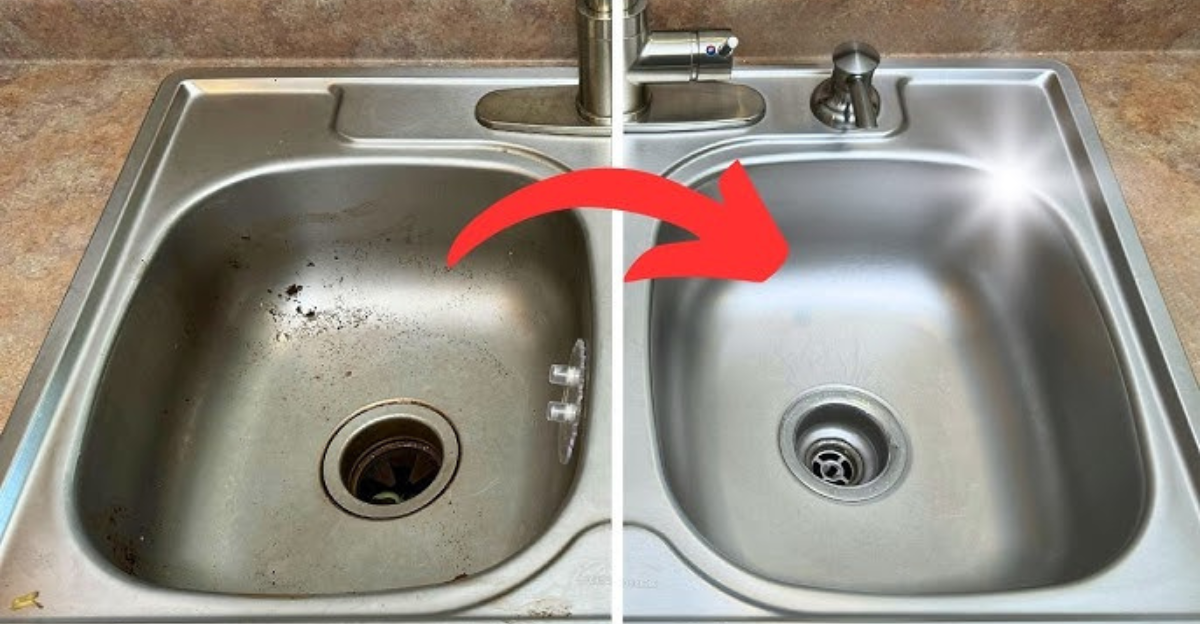
Stainless steel polishes are specialized products used to clean stainless steel surfaces and prevent rusting. White vinegar can be used to wipe the surface clean and olive oil may be applied after to polish the clean surface.
16. Reusable Cleaning Wipes
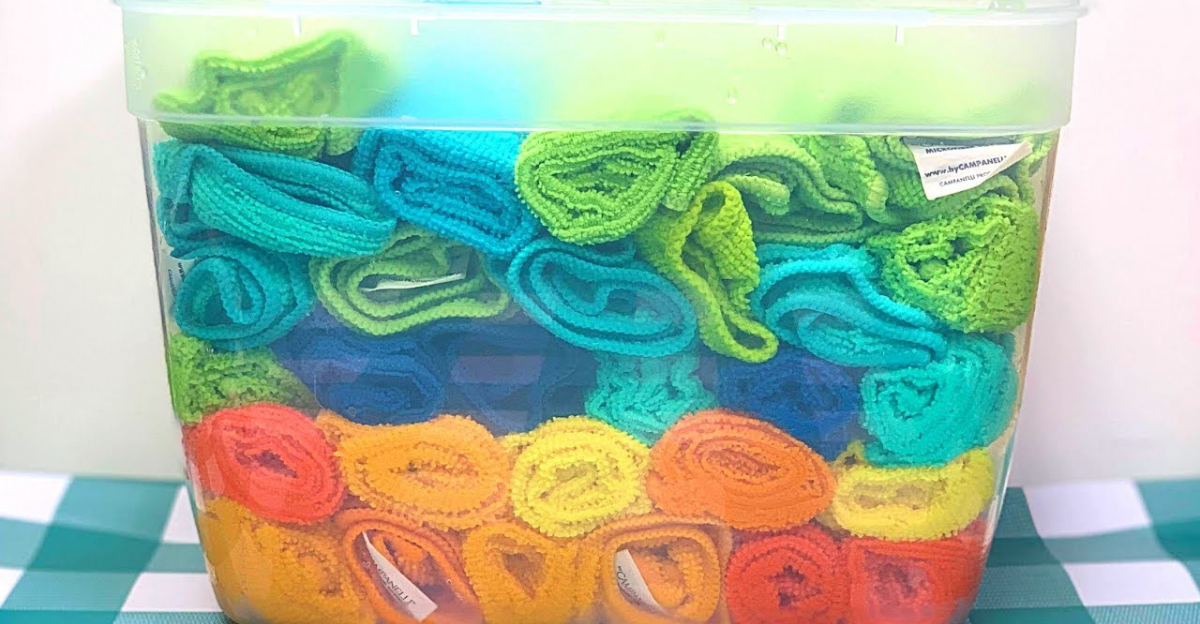
Single use cleaning products are plenty wasteful especially since one or two isn’t enough to truly get the job done. These however are convenient when cleaning hard to reach spaces or for focusing on a limited area. Gather old fabric from unwearable clothes and old towels and cut into wipe sizes. Soak them in a container of water, vinegar, and essential oils and take one when the need arises. After use, put them in the laundry and do it again.
17. Lemon Salt Scrub
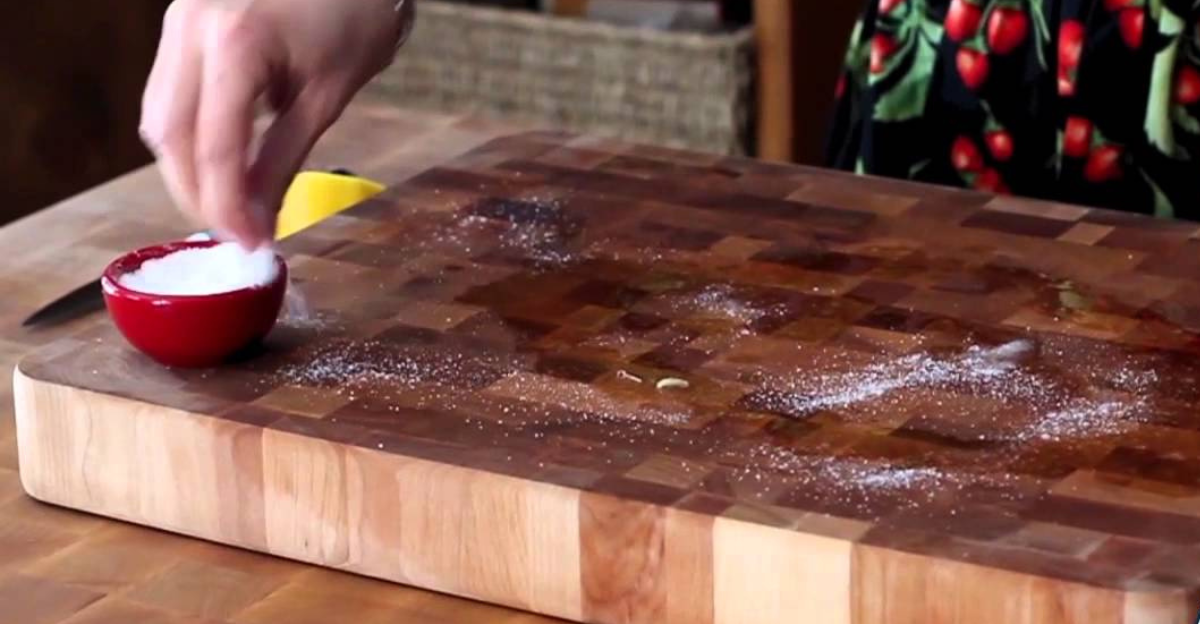
Cutting boards and pans have one thing in common and that is stubborn staining or grime build up. Halving a lemon and lathering in coarse salt makes for a great scrubber. Lemons have natural stain removing property and the salt acts as an abrasive to remove stains.
18. Goo Remover
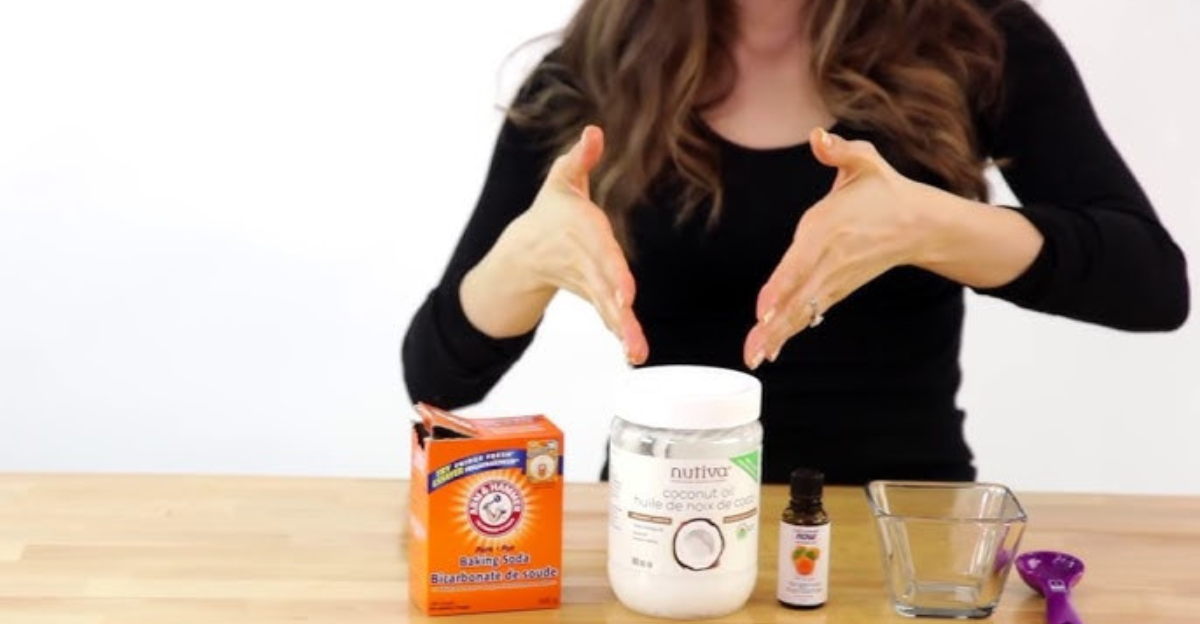
It’s annoying when items are left with sticker residue from price tags. Soaking in hot water, rubbing alcohol, or scrubbing until your fingers are raw doesn’t cut it. Add together equal parts of baking soda and coconut oil to get rid of the stubborn residue.
19. Stovetop Degreaser
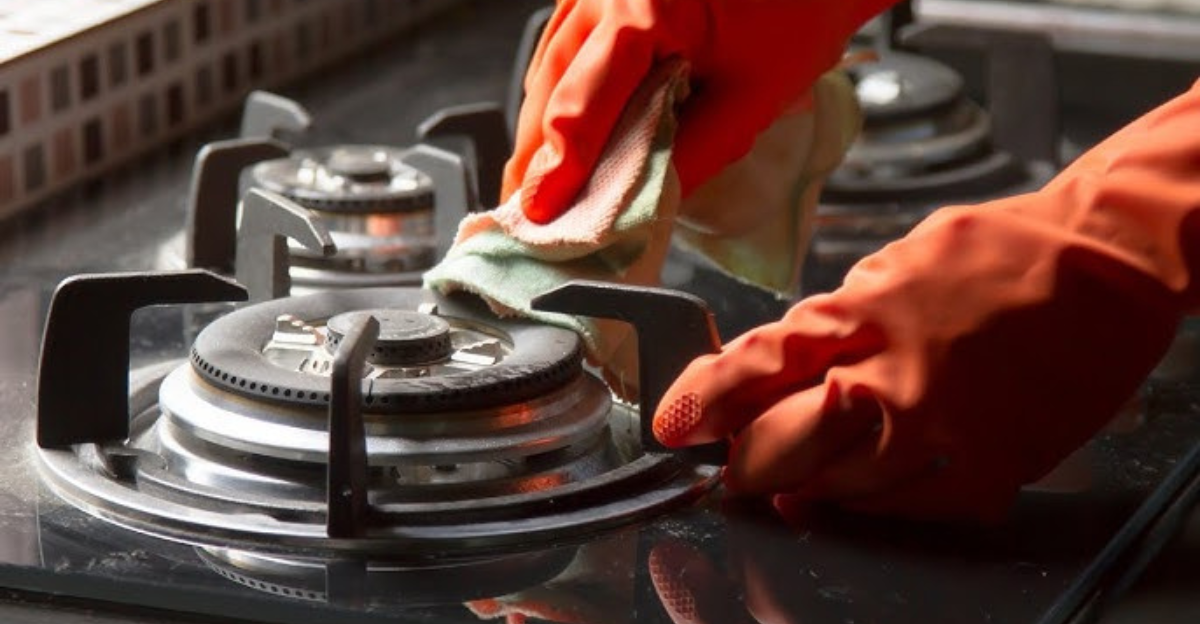
Stovetop build-up primarily consists of oil and grease from cooking meals and are slimy to wipe down with just a cloth. Spray and allow the area to soak in 2 parts vinegar, 1 part baking soda, and warm water to break down the grease more efficiently.
